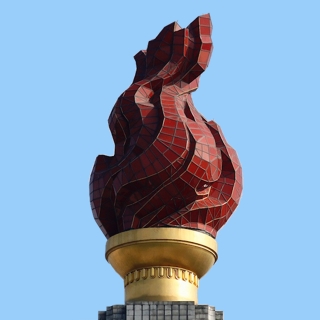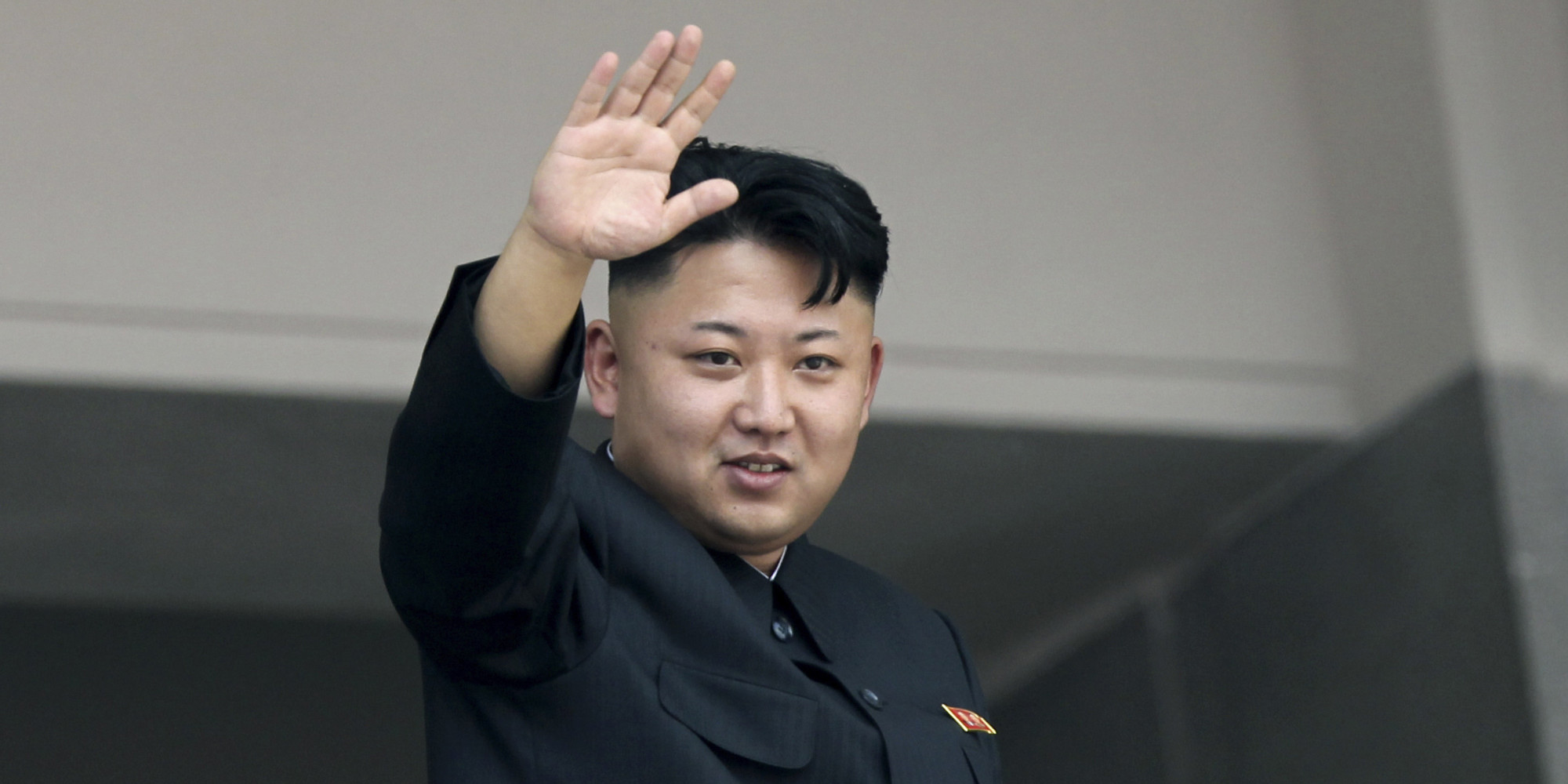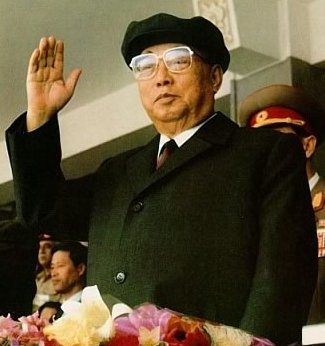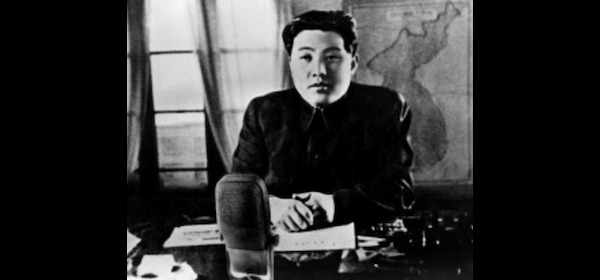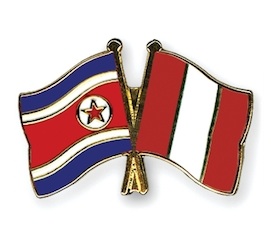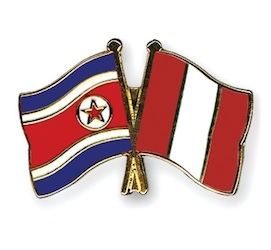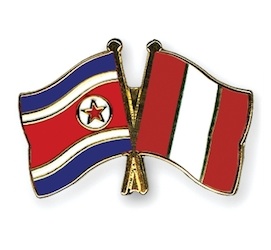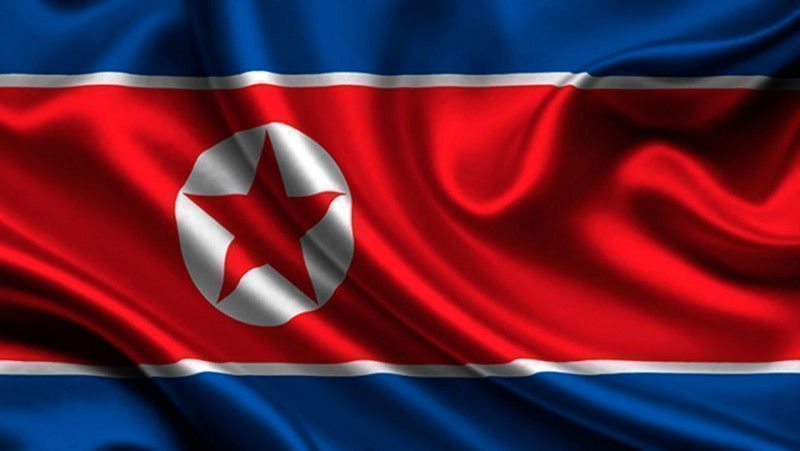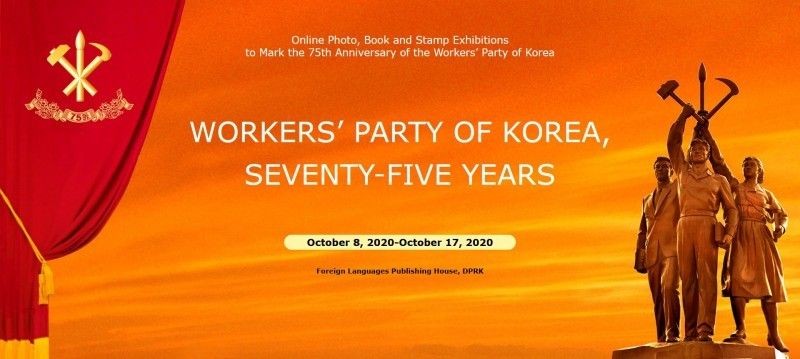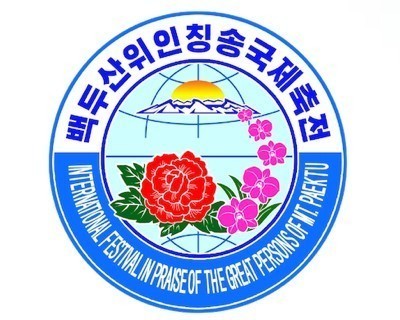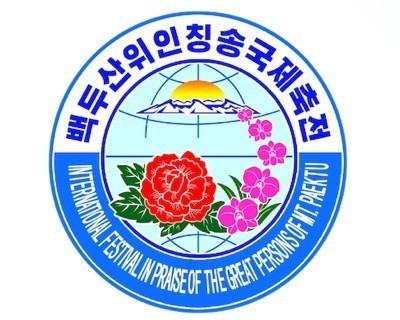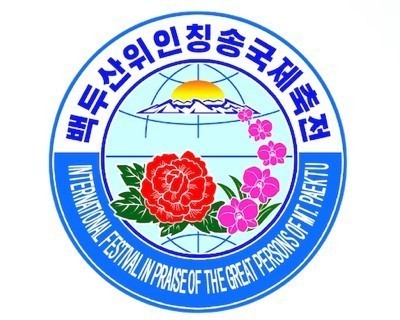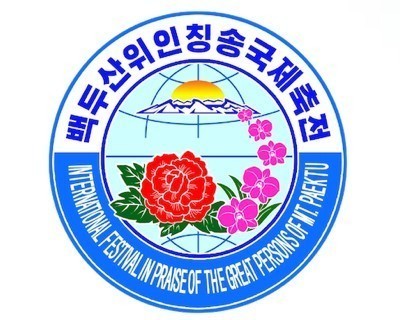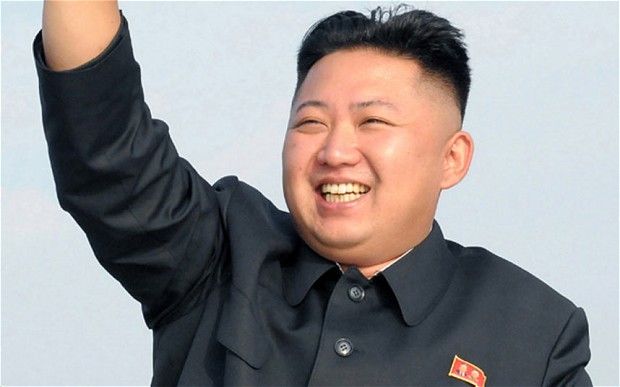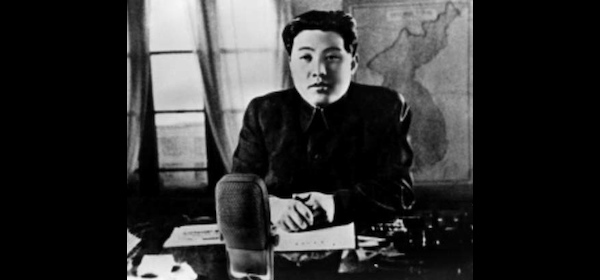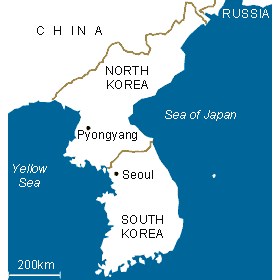WHOEVER meets President Kim Il Sung will be attracted by his personality. I still vividly remember the touching impression I got from him when I visited Korea and met with him for the first time. The explanation he gave about the question of women in Korea at that time is the hard core of the women's liberation that the world is trying to achieve now.
President Kim Il Sung was an outstanding strategist and tactician and leader of women's liberation movement.
Women play active roles in Korea
In 1972 when I visited Korea, the Korean people saw in the second year of the Six-Year Plan for development of the national economy (1971-1976) and were pushing ahead with the building of socialism with vigor.
The liberation of Korea had been achieved and the socialist construction in Korea was under way with the Juche idea as the guiding ideology. It was at that time that we got to be acquainted with the Juche idea for the first time.
Reading books about the Juche idea, I learned for the first time that the Juche idea is the guiding ideology for the state building and the socialist construction in Korea.
The Juche idea is a man-centred ideology of independence and self-reliance that man is the master of his destiny.
I thought that the idea is surely truth.
During my stay in Korea I found slogans showing the main tasks of the Six- Year Plan here and there along streets. There I found the words “three major technical revolutions.”
It included three components: first, eliminating the difference between heavy labor and light labor; second, eliminating the difference between farm labor and industrial labor; and third, freeing women from the heavy burden of kitchen work and childcare.
We were very much surprised to find that the three major technical revolutions, which is a major national policy, stipulate that women be freed from the heavy burden of kitchen work and upbringing of children. During our stay in Korea, we visited several factories, cooperative farms, schools and hospitals. Wherever we went, female cadres from the organization accompanied us.
I was surprised by the fact that female cadres were everywhere in Korea already in 1972.
In 2010, the UN Commission on Elimination of Discrimination against Women expressed the opinion to the Japanese government that capabilities of women were not being put to full use and recommended to them that they should enhance the role of women immediately.
The Japanese government has been talking a lot about improving the position and role of women, but they have not put their words into practice and they do not seem to be really willing to do so.
It was my second surprise to see that women in Korea occupy high position and play active role.
As of 1972, there were 37000 female deputies to the Supreme People's Assembly and local people's assemblies.
In 1975, in the World Women Conference held to mark the International Year of Women, a resolution was adopted on creating a relationship where men and women would utilize their capabilities on an equal footing.
Before that time, as of 1972, even the UN was working on the basis that different genders had different roles in life, that is, “men at work, woman at home.” So women were regarded as being inferior to men in society.
In Korea, however, already then, there were as many as 130000 female assistant engineers and specialists working in different fields of the national economy and a majority of factory managers, university presidents, hospital directors and institute directors were women. In particular, 80% of the heads of primary schools, nurseries and kindergartens were women.
Out of over 3000 cooperative farms in the country, management boards were headed by chairwomen in one third of them.
So it was no wonder that wherever we went, women managers guided and briefed our delegation on their units.
In all the places we visited, we found that it was the policy of the WPK and government to liberate women from kitchen work and childcare and all the factories and farms had their own nurseries and had women cadres.
This made us eager to meet face to face the leader of Korea who governed the state in such an excellent way and learn what he thought.
Every day we begged the officials guiding us to arrange for us to meet President Kim Il Sung by any means before our going back home.
Impressive interview with President
On Oct, 23rd, we were told that we were granted an audience with President Kim Il Sung.
At that moment, we felt as if we were in heaven.
Around 5 PM that day, officials from the Ministry of Foreign Affairs took us to where the President was.
When the lift door opened after going up several floors, we saw the President of fine build standing before us.
Usually, guests granted an audience with a great and prestigious man are supposed to come to the place of meeting before him and wait until he comes into there later.
The President, however, greeted us in front of the lift and shook our hands one by one, saying “Welcome.”
From the very first moment, we were surprised and impressed.
During the interview which lasted for more than one and half hours, we had the very precious experience of listening to the President face to face about his opinion on women's liberation.
Ms. Tanaka Sumiko, the head of the delegation, who was then the director of the department of women of the Socialist Party of Japan, started by saying, “We are surprised to see that Korean women are playing such important roles in revolution and construction. What is more, the 5th Congress of the WPK put it on its agenda as one pillar of three major technical revolutions ‘to revolutionize families and liberate women from household chores'. We are impressed and much interested in this. Today we have come here to hear from Your Excellency about your opinion on several matters.”
The President said:
Women take up half of the population of the country. Liberation of women, who take up half of the population, is very important. What is important in liberating women from the heavy burden of household chores is how to change men's way of thinking rather than women's.
Then he continued:
The ideas of Confucius and Mencius permeate the societies in both Korea and China, so the conception of men's predominance over women still remains a lot. This thinking is deeply rooted especially in men, so men have big responsibility in the question of women liberation. I think this is the same case in Japan, too.
Now in Korea women are actively engaged in social life, but the conception that women must respect men in society still persists. When you look around the street in the morning rush hour, you will see women taking children to nurseries and kindergartens on their way to work, carrying one kid on the back and taking another kid by the hand and carrying a large luggage stuffed with diapers in the other hand. And you will see men walking next to them without carrying anything.
Why is it that men don't take children to nurseries and kindergarten? If they did it, it would help women. It is because they still think that it is not man's job.
I am thinking of setting up many nurseries as soon as possible during the Six-Year Plan to relieve women from the burden of bringing up children. I think that it is the duty of the government and the Workers' Party to support women who are working hard for the society.
We were completely engrossed in the conversation, looking fixedly at the President with widely open eyes.
We had never expected such excellent explanation.
The President went on to say:
Even if facilities are provided, they will not be enough by themselves. Children should have tasty and nutritious food. And they need good care and education, so it is important how to train teachers of nurseries and kindergartens. It is very important to train good teachers in order to bring up children in a good way. All these are the duty of the government and the Party.
We are now working on this. Today more than 6.5 million children are learning free of charge at kindergartens and schools under compulsory education system alone and we are trying to make it more perfect through the fulfilling of the Six-Year Plan.
We have not yet embarked on freeing women from the kitchen. The building of foodstuff processing factories is being delayed. We have imported some equipment from foreign countries and we are thinking of what kind of processed foods to make.
Women in rural areas are doing more hard toil.
It is considered as woman’s job to draw water from the well even after farming labor all day long.
That is why we are going to install water supply system in rural areas as soon as possible to liberate women from the hard labor of drawing water.
Mr. Tanaka, who had visited many countries and met many leaders, said frankly to the President, “I think it is rare in the world that the leader of a country concerns himself about nurseries like you do.
This is the first time in my life to hear such things from the leader of revolution. Really impressive.
Man and woman turn the two wheels of society
The President said:
In order to develop society in a right way, man and woman should advance society by joint efforts on an equal footing. Both of the two wheels must turn properly to drive a wagon; similarly, society can not develop if man and woman do not work together.
If you compare the society to a wagon, one wheel is man and the other is woman.
The wagon will not move if only man moves. So I think it is the responsibility of the government and the Party to give policy support to women so that they can fulfill their duty as the other wheel. In our country, women are doing a great job.
So I am planning to liberate women from the heavy burden of household chores and childcare by all means during the Six-Year Plan.
Women’s participation in public work is important not merely in terms of providing extra labour force.
If women only stay at home, they cannot get social knowledge, nor can they live as social being. They will not get education and training as a social being, thus failing to enhance their independence as a human being.
It is an inevitable task to revolutionize women in pushing ahead with the building of socialism.
We should take responsibility for ensuring that women play their social role. To this end, the government and the Party should help relieve women from the heavy burden of household chores and ensure that women change their thinking.
If women fail to change their thinking, it will have an effect on revolutionizing of the family and education of children.
If women change their way of thinking, they can also educate children to be good citizens.
Mothers with the sense of being masters of society can teach children what it means to live in a right way in the society and how to display their capabilities for the development of society.
Eventually, this is the question of the ideological revolution of women and leads to the question of bringing up successors to the revolution. President Kim Il Sung did not simply think that liberating women from the shackles of society would be enough. I think that he was talking about how important it was to fully display women’s way of thinking and abilities in the state building and the building of socialism in Korea and about the strategy for implementing democratic socialism to achieve women liberation and human emancipation in the true meaning of the word.
The content and prospect of women’s emancipation that we were calling for in Japan was already mentioned in his talk.
After a round of talk, he asked, “Any questions?”
I hesitated for a minute before daring to raise a hand and asked him, “ You said Korean women are honest and making excellent achievements. Would you give an example showing how the Juche idea is being applied in daily work?”
Then the President thought for a while and said nothing.
The interview had taken quite a long time, so we said goodbye to him and got back to the hotel.
The Juche idea is a philosophy living in practice.
We were all excited after the audience.
Everyone agreed that there had never been a leader like the President in Japan as well as in the world and suggested sleeping that day with their hands, which the President had shaken, unwashed and kept in their bosom.
All of us were rather aged, but we were excited as if we had come back to youth.
When we were about to have dinner, the President called us.
He said he was watching a drama with the members of the Central Committee of the Party and he thought its content might give an answer to the question that the Japanese ladies had asked during the day and suggested that we come to watch.
Everyone agreed to go, changed clothes and went to the theatre where the drama was showing.
When we got to the floor by the lift, the President was again waiting for us here and welcomed everyone.
Inside the theatre we saw the members of the Central Committee of the Party sitting in the front line of the hall. (We were told that the President saw Act 1 and invited us to come and he told them to show the drama again from the beginning for us.)
We saw the drama sitting next to the President.
The drama was based on a true story in a poor rural area in the northern part of the country.
The chairperson of the management board of the cooperative farm in that area was a woman. That area was too cold and wet to plant rice. The heroin of the drama thought that only by planting the rice could the food problem of the people be solved, so she consulted with village people.
But nobody agreed with her, saying that only pepper had been produced in the land of that area, nobody had cultivated rice and that she should abandon such a reckless plan.
However, she tried really hard to cultivate rice by any means, digging out the waterway and measuring the water temperature day and night. Finally she succeeded in cultivating rice in that cool wet land.
From the drama we learned that applying the Juche idea means thinking about how to improve one’s work and implementing it in the Juche-oriented way with the sense of responsibility for one’s work.
We keenly realized that the Juche idea is not a science which was born in the study but a philosophy living in practice.
It is not usually expected that the leader of a country would be so caring as to think about how to give a full answer to a question raised by a foreign woman and ensure that she get an answer.
Keenly feeling the personality and leadership of President, I thought that a leader of people should be like him.
President Kim Il Sung was always with people and lived and worked together with them.
I thought that if he had not been a leader who had liberated people from the colonial rule of Japan and had pushed ahead with the building of socialism with people after the liberation, he could not have come up with such an idea.
Leader is possessed of warm humanity
We visited Korea again in 1978 when the Six-Year Plan had been fulfilled. We looked around a rice-cooking shop. It was located in one corner of a residential area and there were 24 kinds of staples, 7 kinds of soup and Kimchi available at any time. There was also a home delivery system for those who worked late, who were on travel or who were ill. In 1978, too, we were fortunate to be granted an audience with President Kim Il Sung.
We told him that the rice cooking shop was a good idea and women with such shop nearby would find it helpful. The President said: Through the Six-Year Plan we have completely solved the problem of liberating women from childcare.
Liberating them from kitchen work is still under way. We are now pushing ahead with setting up rice cooking shops. But as people have different tastes, it is under discussion whether it is good to mass produce same thing in one kitchen or not. It is planned to enable those who want to cook their favorite food to prepare a simple meal in about 15 minutes.
The leader of a country came up with the idea of enabling people to prepare meals in about 15 minutes.
He added that while rice cooking shops would continue to exist because there were people who needed them, food processing factories and household electric appliances factories would be built in future to expand the network of community service for families.
There was a drive under way to set up many public dining rooms at workplaces and in farms to serve employees one meal every day. This made us think that he was indeed an outstanding leader as he had been concerning himself with liberating women from kitchen work for several years.
The President is an outstanding strategist who highly appreciated abilities and roles of women in society and exploited the potentials.
At first we had wondered why Korean women were moved to tears just on hearing about the President.
When we met the President face to face, he told us many things with broad smile, which made us feel a sense of intimacy as if we were with our father and confide in him.
I think that anyone who meets him would feel the same.
This is all because of his personality. Korean women hold the President in high esteem with respect and affection, calling him “our fatherly leader.”
The feeling of Korean women looking up to the President shows good relationship between the leader and people. And they do their best for the good of the President. This is a very touching picture, I think.
In Korea women are in high spirits as they take responsibility for the development of society together with men.
As they hold in high esteem President Kim Il Sung who highly appreciated women’s roles and position, Korean women can proudly say that they are advancing one step ahead of men.
I see another superiority of the Korean socialism in that there the position, role and capability of women as a main pillar of the society as a whole is properly appreciated and their position is high. I realized that genuine relationship between the leader and people is found in Korea.
It was in 1992 that I met with the President for the last time. When he passed away on July 8, 1994, I felt more grief than I would over the demise of my own parents and shed tears for several days.
At that time, a professor of Rihwa Girls University sent me a letter, in which she wrote, “When I visited Pyongyang, I was granted an audience with the President only once. But I can't stop shedding tears and my yearning for him becomes stronger and stronger. I don't know why. I am wondering myself why.”
Reading the letter, I thought that everybody is attracted to the President because he is brimming with human love - affection for people, love of his nation and love of his compatriots.
He was a very attractive leader who made everybody meeting with him respect him and feel a sense of intimacy and affection in their heart. I learned many things from the President.
Historical settlement of the Japan-Korea relationship, reunification of Korea and denuclearization of the Korean Peninsula, desires of the President, are the tasks for Japanese people and we have the duty and responsibility for implementing these policies. ***
Shimizu Sumiko
Former Representative, Japanese Women’s Liaison Committee for Solidarity with the Korean Women

